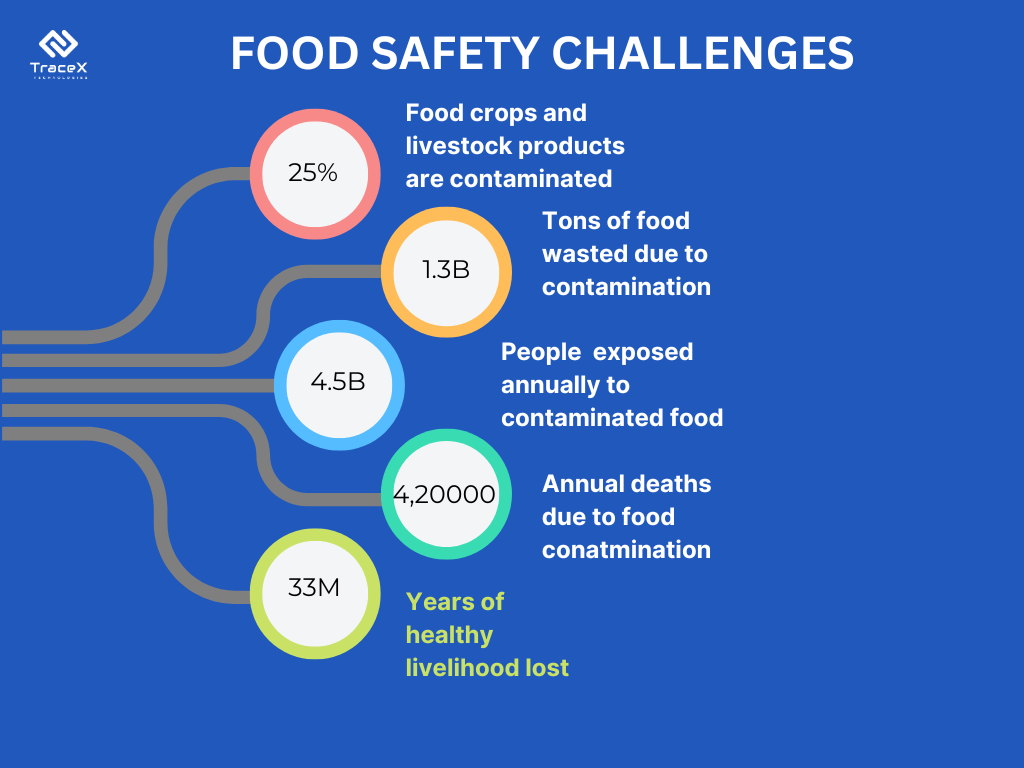Contact: +91 99725 24322 |
Menu
Menu
Quick summary: Explore the complexities of achieving FSMA compliance within African food supply chains. Learn about the unique challenges, strategies, and best practices for ensuring food safety and regulatory adherence in this dynamic environment.

Navigating the Food Safety Modernization Act (FSMA) compliance is crucial for businesses operating within African food supply chains. As regulatory standards evolve to prioritize food safety and quality, understanding the key considerations under FSMA becomes paramount.
Navigating global food safety regulations is crucial for both manufacturers and consumers, shaping the strategies companies employ in today’s interconnected market.
The Food Safety Modernization Act (FSMA) represents a significant shift in the approach to food safety regulation in the United States. Enacted in 2011, FSMA is the most sweeping reform of U.S. food safety laws in over 70 years. It was designed to address the evolving challenges of foodborne illness outbreaks and enhance the safety of the nation’s food supply. FSMA places a greater emphasis on preventive measures, requiring food facilities to implement comprehensive food safety plans based on hazard analysis and risk-based preventive controls. The legislation also grants the Food and Drug Administration (FDA) new enforcement powers, allowing the agency to more effectively regulate and oversee food production and distribution.
FSMA compliance is crucial for safeguarding public health and maintaining consumer confidence in the safety and quality of the food supply. By focusing on preventive controls and risk reduction strategies, FSMA aims to reduce the incidence of foodborne illnesses and outbreaks. Compliance with FSMA regulations helps food facilities identify and mitigate potential hazards at various stages of the food production process, from farm to fork. This proactive approach to food safety not only protects consumers but also benefits food businesses by reducing the risk of costly recalls, legal liabilities, and damage to brand reputation. Furthermore, FSMA compliance fosters transparency and accountability throughout the food supply chain, ensuring that all stakeholders fulfill their responsibility to produce and distribute safe and wholesome food products. Overall, FSMA compliance is essential for promoting public health, enhancing food safety standards, and building trust in the integrity of the U.S. food system.
Africa faces substantial challenges with high rates of foodborne diseases and hazards, highlighting significant weaknesses in its food system’s capacity to adhere to food safety regulations. This situation leads to considerable public health issues, as indicated by the World Health Organization (WHO), which identifies Africa as having the highest burden of foodborne illnesses globally.
Non-compliance with FSMA regulations can have serious consequences for African food supply chains and the health of consumers. Failure to meet FSMA requirements may result in increased risks of foodborne illnesses, outbreaks, and product recalls, undermining public trust in the safety and integrity of food products. Inadequate food safety practices can also hinder market access and trade opportunities, limiting the competitiveness of African food businesses in domestic and international markets. Moreover, non-compliance with FSMA regulations may lead to regulatory sanctions, fines, and legal liabilities for food facilities and stakeholders involved in the supply chain. Overall, addressing the challenges of FSMA compliance in African food supply chains is essential for improving food safety standards, protecting public health, and promoting sustainable economic development across the continent.

To navigate FSMA compliance effectively, businesses operating in African food supply chains must have a comprehensive understanding of the regulatory requirements outlined in the legislation. This includes familiarizing themselves with key provisions such as preventive controls, hazard analysis, risk-based inspections, and mandatory recall authority. Businesses should also stay updated on any amendments or revisions to FSMA regulations to ensure ongoing compliance with evolving standards.
Before implementing changes to achieve FSMA compliance, businesses should conduct a thorough assessment of their current food safety practices and procedures. This assessment should encompass all aspects of the supply chain, including production, processing, packaging, storage, transportation, and distribution. By identifying existing gaps, vulnerabilities, and areas for improvement, businesses can develop targeted strategies to address deficiencies and enhance overall food safety performance.
Based on the findings of the assessment, businesses should prioritize and implement necessary changes and improvements to align with FSMA requirements. This may involve establishing robust food safety management systems, implementing preventive controls, conducting hazard analysis and risk assessments, enhancing sanitation and hygiene practices, and implementing traceability systems to facilitate product recall and withdrawal procedures. Businesses should also invest in training and capacity-building initiatives to ensure that employees are adequately equipped to adhere to new procedures and protocols.
Traceability solutions play a crucial role in supporting businesses in achieving FSMA compliance within African food supply chains
TraceX blockchain traceability solutions address challenges in food safety by providing end-to-end visibility and transparency throughout the food supply chain. By leveraging blockchain technology, TraceX creates an immutable and tamper-proof record of food product data, including origin, processing, and distribution details. This transparent and auditable system enables rapid and accurate traceability, facilitating the identification and containment of food safety risks. Additionally, TraceX enhances collaboration and communication among supply chain stakeholders, enabling real-time sharing of critical information to prevent and respond to food safety incidents effectively. Overall, TraceX blockchain traceability solutions empower businesses to proactively manage food safety risks, uphold regulatory compliance, and safeguard consumer health and trust.
The landscape of food safety is constantly evolving, driven by factors such as increased food imports, longer supply chains, climate change, and technological advancements. These trends pose new challenges for ensuring food safety but also present opportunities for improvement. By embracing emerging technologies and adopting smarter approaches, African countries can effectively address these challenges and enhance their competitiveness in both continental and global food trade.
The African Union’s SPS Policy Framework, crafted by the African Union Commission (AUC) Department of Agriculture, Rural Development, Blue Economy, and Sustainable Environment, offers a comprehensive blueprint for a contemporary, unified, and synchronized SPS system. Aligned with the World Trade Organization (WTO) SPS agreement and the standards set by SPS International Standard Setting Bodies, the framework seeks to expedite agricultural growth and transformation while enhancing public health, food security, and trade within and beyond Africa.
In conclusion, navigating FSMA compliance in African food supply chains requires a concerted effort from all stakeholders, including governments, businesses, and consumers. While the challenges may seem daunting, they also present opportunities for innovation and improvement. By embracing FSMA regulations and implementing robust food safety measures, African countries can not only enhance the quality and safety of their food supply chains but also bolster public health and boost their competitiveness in the global market. With continued collaboration and commitment, Africa can pave the way for a safer and more resilient food system for generations to come.
